
Introduction
In recent years, several members of the ICT4D Collective have gone back to their roots and started focusing once again on the critical importance of safe, wise and secure use of digital tech if people are to benefit from its positive aspects. Some of the most marginalised people in the world, with little or no training in the basic use of digital tech, are among the most vulnerable to the harms for which it can be used. Several of us have professional research and practical interests in cybersecurity (see for example, Elizabeth Quaglia), but many of us are concerned with the surprising paucity of basic training available on what people can do to reduce the risks of being harmed through digital tech.
Much of our present work in this area has come from the Collective’s involvement in the UKRI-GCRF funded MIDEQ Hub, where we worked with migrants and their organisations, particularly in Nepal and South Africa, to develop resources that could be used to provide basic training in how they can use these technologies safely, wisely and securely. These are all available under CC BY SA licences (in several languages) through our Migration and Digital Tech page (work by G. “Hari” Harindranath, Tim Unwin, and Maria Rosa Lorini). During 2023, we began to realise that these resources have much wider relevance, and thanks to funding from the ESRC through Royal Holloway, Univeristy of London’s Social Science Impact Accelerator (SSIA), in 2024 we began working in Brazil with organisations in the periferias of São Paulo and Rio de Janeiro, to reversion the resources into Brazilian Portuguese and developing alternative means of disseminating them that are more relevant to the needs of these communities. This in turn led to us exploring with Mozambican colleagues how the Portuguese version might be reversioned for use with volunteers and journalists there. Through our networks with Community Media, especially radio, organisations (see the WSIS+20 session we convened in 2024) we then started exploring further resources for the training of community journalists in parts of Asia.
Brazil: in the periferias
Our research-practice in Brazil has focused very much on working in São Paulo and Rio de Janeiro with peripheral communities (those living in the favelas, the LGBTIQ community, informal artisans and traders, youth, and single mothers with children) to explore the modalities in which they would like to receive information about the safe, wise and secure (private) use of digital tech (led by G. “Hari” Harindranath and Tim Unwin). The first stage was the crafting of a version of our basic training deck and guidance notes into Brazilian Portuguese (thanks so much to Luana Guede for the translation). In May 2024 we then held workshops funded by a SSIA grant in São Paulo (thanks to Fernanda Scur for her support) and Rio de Janeiro (in Maré; thanks to Heloisa Melina for her support) with diverse groups of people to explore ways through which these resources could best be reversioned to be relevant to the needs of their communities. This work has now been carried forward on the ground by Heloisa Melina and colleagues (creating a slide deck and pamphlet, available in different formats below) and the new resources were launched at a workshop in Maré on 12th September 2024.
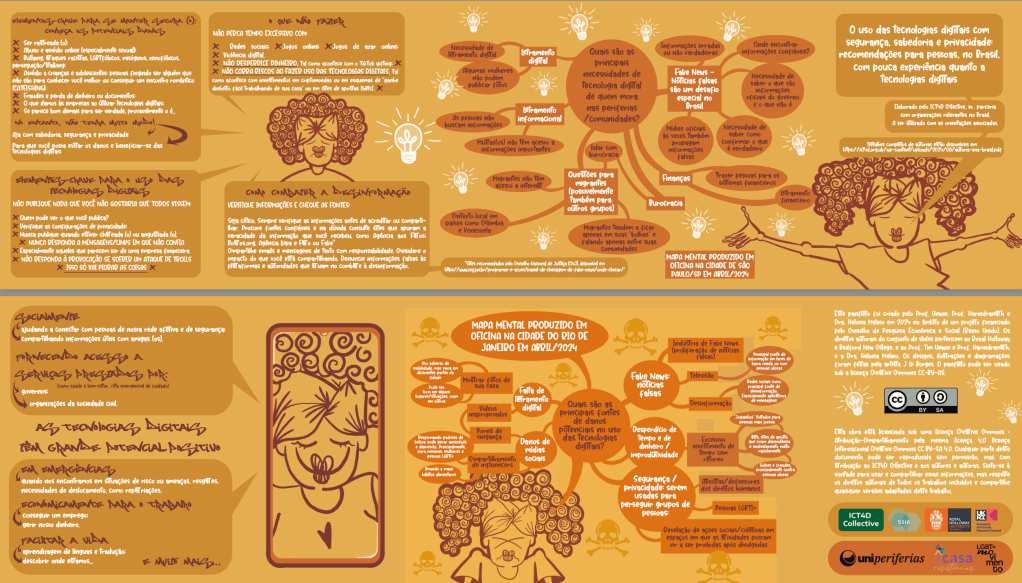
Two-page pamphlet entitled O uso das tecnologias digitais com segurança, sabedoria e privacidade: recomendações para pessoas, no Brasil, com pouca experiência quanto a tecnologias digitais (.pdf format)
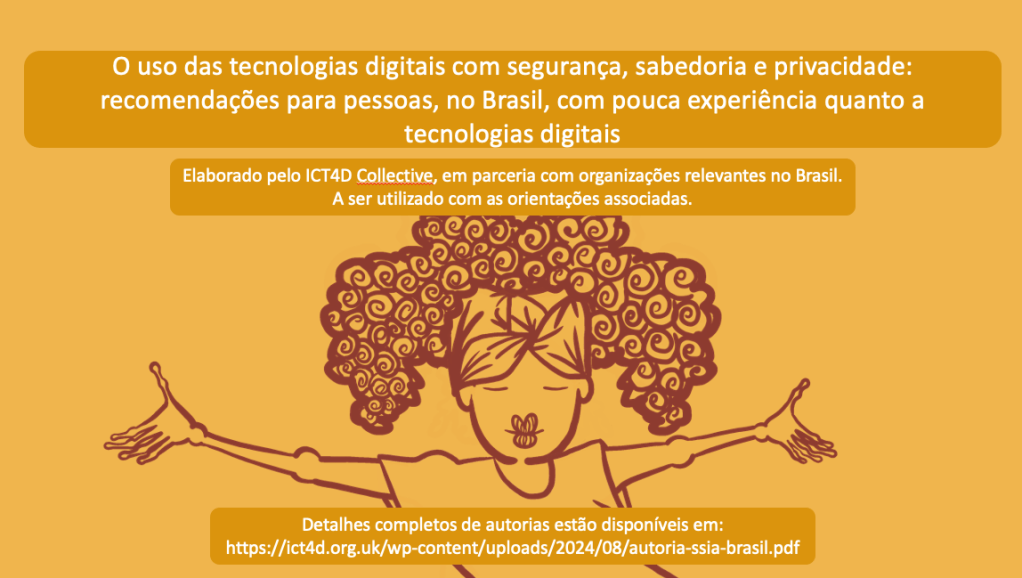
Slide deck (.pptx) and .pdf format on O uso das tecnologias digitais com segurança, sabedoria e privacidade: recomendações para pessoas, no Brasil, com pouca experiência quanto a tecnologias digitais
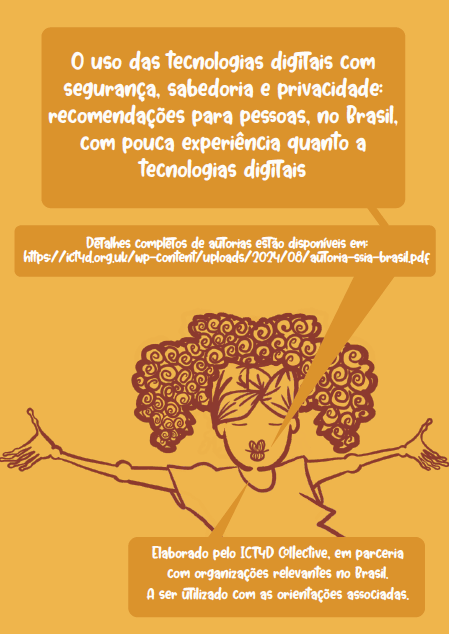
Cover and details of authorship and licensing (CC BY SA) of the above resources.
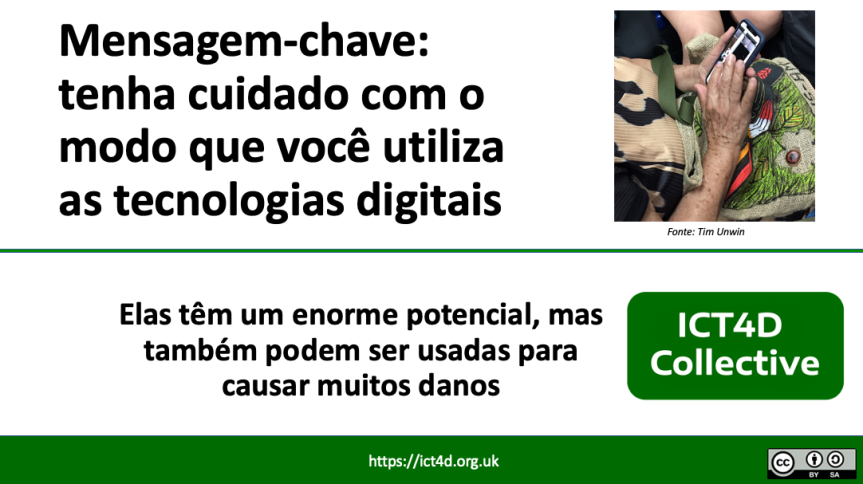
Slides and guidance notes about safe, wise and secure use of digital tech for people living at the peripheries of society in Brazil (in Portuguese).
Subsequently, in mid-2025 we extended this work further in collaboration with Efeito Urbano – the first professional dance company in Morro da Providência (see blog post). These dancers put on a stunning performance capturing the intertwining of physical and digital lives in the favelas of Rio. Click on the image below for a short edited video of their dance performance (or use this link to the video).
This was followed by a workshop on the safe, wise and secure use of digital tech by vulnerable groups with some of the artists and members of the audience. Participants were keen to share their online experiences with each other and through the creation of a series of short videos.




Women and girls in South Africa
Our work as part of MIDEQ with migrants from ten different countries living in South Africa (led by Maria Rosa Lorini) highlighted particular needs by women and girls for information about using digital tech safely, wisely and securely. In support of this need, we developed a separate resource for women in southern Africa (in English), and are exploring means of reversioning this further in other languages.
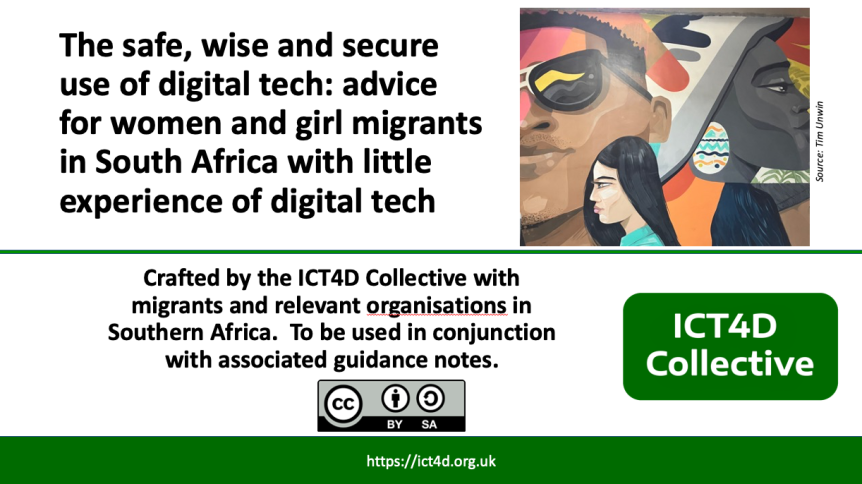
Slides and guidance notes about safe, wise and secure use of digital tech for women and girls, especially migrants, in South Africa (in English)
Journalists and volunteers in Mozambique
Building on our work in Portuguese in Brazil, we have returned to our networks in Mozambique, where members of the ICT4D Collective first worked in the early 2000s, and particularly at Eduardo Mondlane University. They identified that there was a real need for volunteers and journalists working in community radio, many of whom have had little experience of using digital tech, to receive training in the safe, wise and secure use of digital tech.
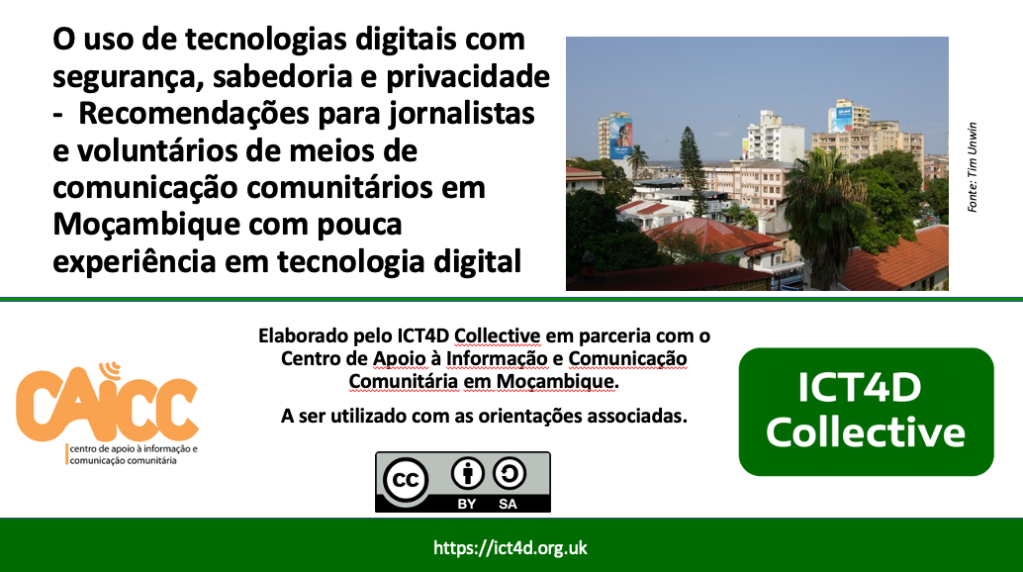
Slides for training volunteers and community radio journalists currently being piloted by our colleagues at CAICC in Mozambique (in Portuguese)
Working with colleagues at Eduardo Mondlane University, we have also translated our guidance notes for small civil society organisations into local Portuguese, and these are available here.
Community radio enthusiasts in Nepal
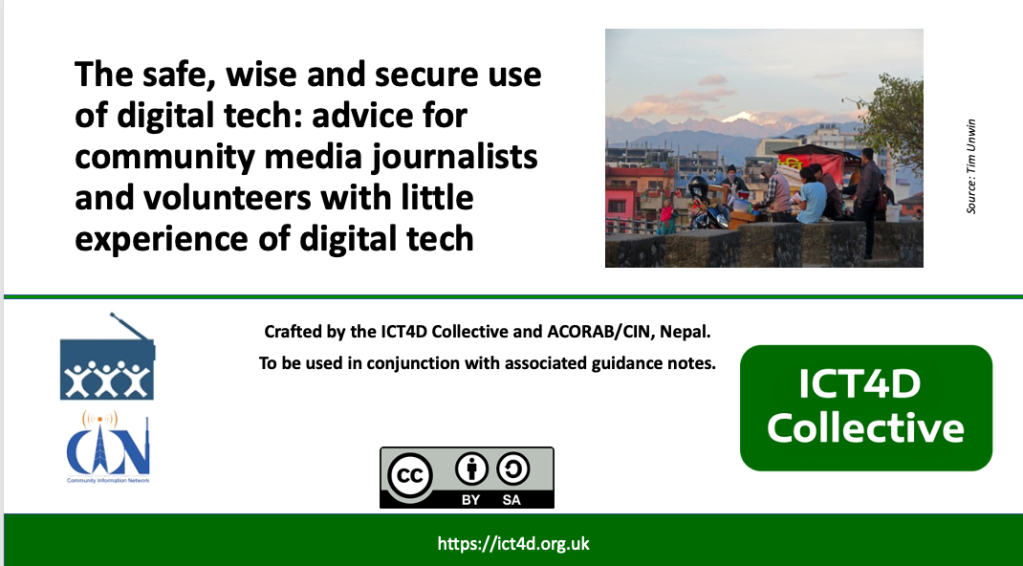
Building on our work with colleagues in Mozambique we have developed with our partner ACORAB/CIN a set of slides for training people involved in community radio in Nepal about safe, wise and secure use of digital tech (currently, only available in English).
Tips on ensuring high quality basic video production
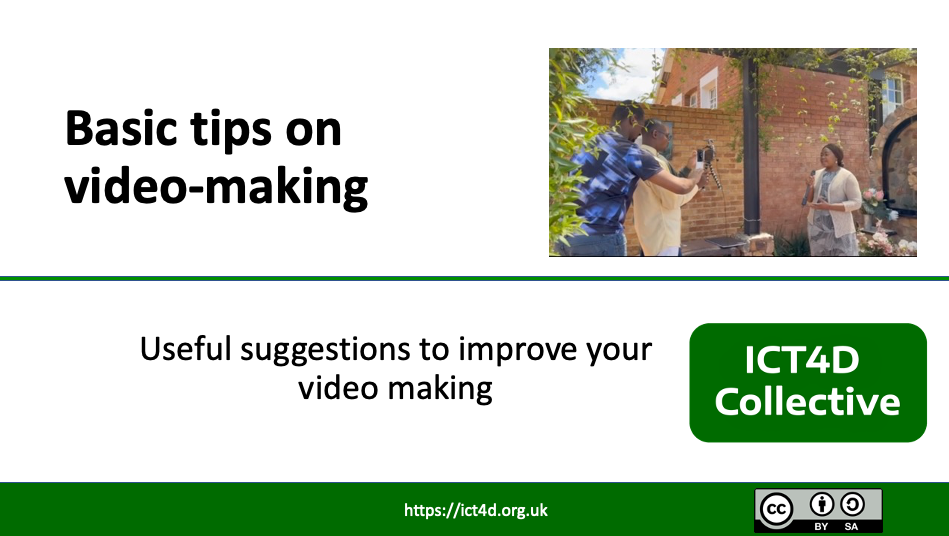
Building mainly on our work with content developers and migrants in South Africa, as well as colleagues in Brazil, we have developed a short set of basic slides on simple things to do to improve your video making (in English and Portuguese). Find out all about the importance of GATES in English!
Guidance for small civil society organisations on using digital tech safely, wisely and securely

During one of our research visits to South Africa in January 2024 it became abundantly clear that many small and poorly resourced civil society organisations have little experience of using digital tech safely, wisely and securely. Drawing on good practices across the world, we have therefore produced a short (12 page) guide to help such organisations understand the risks and how they can be mitigated (Version 6, May 2025). A Mozambican Portuguese version of this document is available here, and a Nepali version here.
Further research-practice on gender and sexual harrassment through digital tech
A recurring theme across some of our research over the last decade, particularly in South Asia, has been concerned with understanding why there is so much online gender violence and sexual harassment of women, and what can be done to change this. This work builds on research-practice with young women in Ethiopia in the early 2000s as part of the work of Imfundo: Partnership for IT in Education.
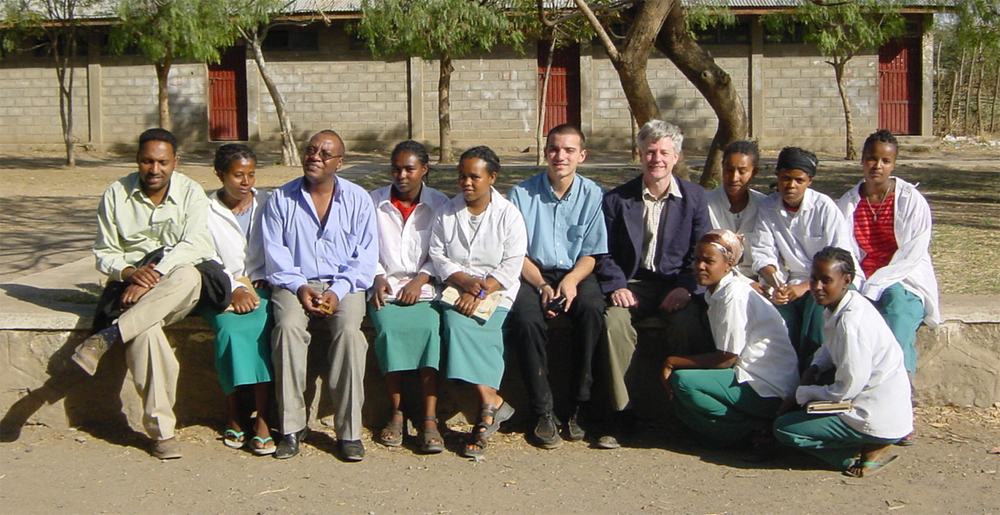
TEQtogether: changing men’s attitudes to women and technology
TEQtogether was founded by members of the ICT4D Collective Tim Unwin and Elizabeth Quaglia as a group of volunteers committed to changing the attitudes of men to “women and technology” in a wide variety of ways.
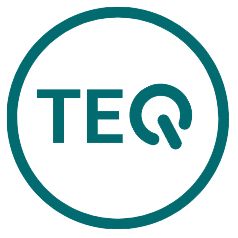
It focuses on four main themes:
- Informing men about how their actions impact digital gender inequality, especially through our workshops and sharing other resources (see our Resources and Other Initiatives pages);
- Identifying actions that men can take to enhance gender equality in the tech workplace (see our Guidance Notes)
- Recommending actions that men can take to reduce digital violence against women (see our research on the use of mobiles for sexual harassment in Pakistan)
- Encouraging reverse mentoring through which women mentor men at all levels in tech organisations.
Publications on gender, violence and sexual harassment through use of digital tech
See, for example, the following publications:
- Unwin, T. and Gardezi, A. (2022) Male Attitudes and Behaviours Towards Women and Digital Technologies in Pakistan, Egham: UNESCO Chair in ICT4D, Royal Holloway, University of London, Working Papers No.5.
- Unwin, T. (2021) Digital violence: individual actions for survivors, YouthIGF.
- Hassan, B., UNwin, T. and Gardezi, A. (2018) Understanding the darker side of ICTs: gender, harassment and mobile technologies in Pakistan, Information Technologies and International Development, 14, 1-17.
- Hassan, B. and Unwin, T. (2017) Mobile identity construction by male and female students in Pakistan: on, in and through the ‘phone, Information Technologies and International Development, 13, 87-102.
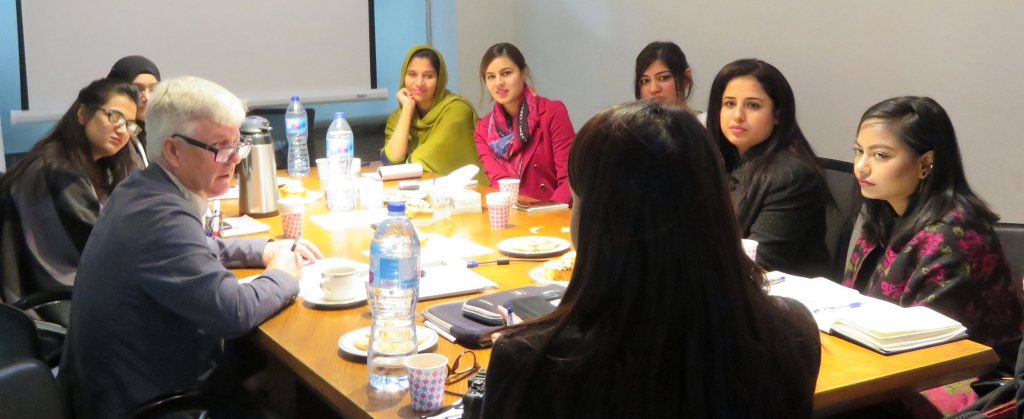
Cybersecurity
Members of the ICT4D Collective have engaged at many levels in research and practice in the fieid of cybersecurity over the last two decades, from Elizabeth Quaglia‘s ongoing research in cryptography to Tim Unwin’s role as Master of Ceremonies at the Commonwealth Telecommunications Organisation’s CyberKeys event at the Royal Society in London in 2024 (below).
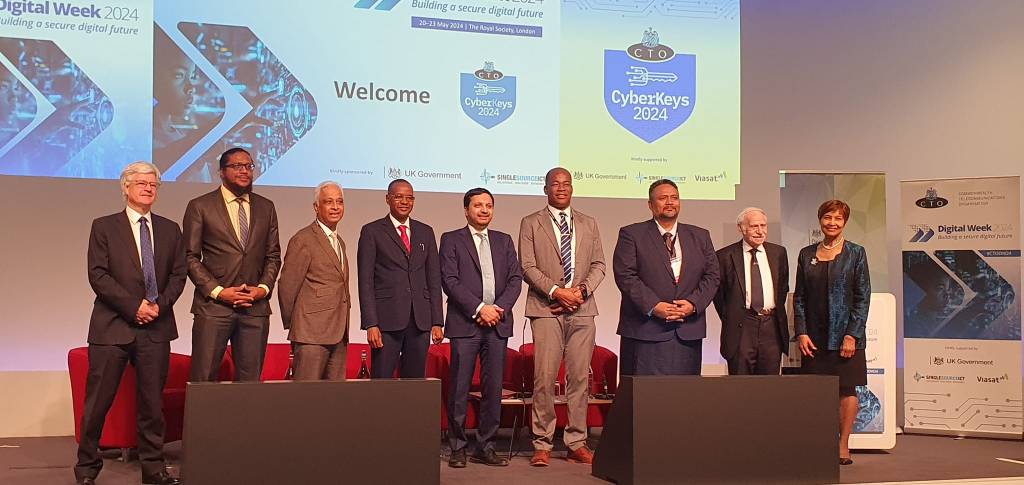
In particular, we continue to engage with international organisations working in the field of Cybersecurity, and to advance conceptual thinking around the importance of Cybersecurity in broadly defined international development. See, for example,
- Unwin, T. (2002) Cybersecurity’ and ‘Development’: Contested Futures, in: Cornish, P. (ed.) The Oxford Handbook of Cyber Security, Oxford: OUP.
This conceptualised much work in the field as using top-down approaches in Cybersecurity mainly to secure economic growth, and pondered how alternatives practices of Cybersecurity which are inherently bottom-up might address development conceived as reducing inequalities (as outlined below)
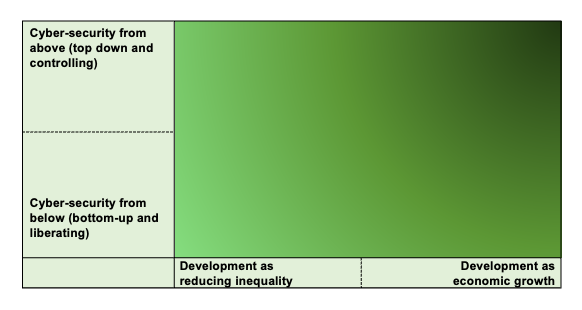
Funding
This research-practice has been funded mainly through the personal resources of members of the ICT4D Collective, but we are also grateful to the UKRI-GCRF and the UK’s ESRC through the Social Science Impact Accelerator at Royal Holloway, University of London, funding from which provided background evidence that enabled some aspects of our work on the safe, wise and secure use of digital tech to be developed. Imfundo was funded by the UK Government through DFID in the early 2000s, and the Inter-Islamic Network on IT has also kindly provided some resources for our work in Pakistan between 2016 and 2024.


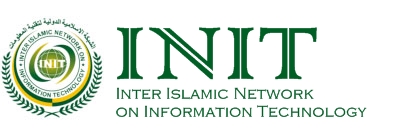
Page created 18 June 2024; latest revision 11 February 2026

